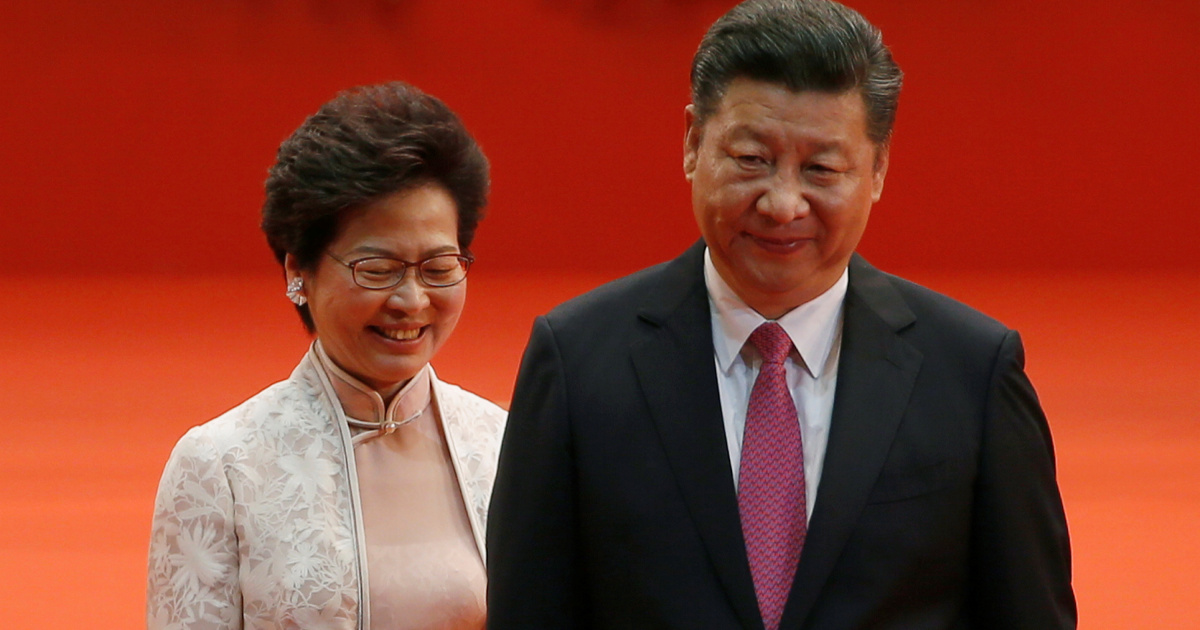Does China need real allies anyway?
In a recent episode of the Policy People Podcast, renowned author, TV host, and Professorial Chairholder in Geopolitics at Polytechnic University of the Philippines Richard Heydarian spoke about whether China even needs allies.
When it comes to Asia, Heydarian described the situation as “Fifty Shades of Grey,” as no country is unequivocally against the communist state, nor is there any that stands in strong support of it. In terms of allies, North Korea and Pakistan have long been considered to be China’s “all weather friends.” However, according to Heydarian, this is far from the reality.
Recollecting the time he spent in North Korea, “Not even once did I hear them saying something positive about China. There was angst; they hated the fact that China made a mockery of their self-sufficiency doctrine.”
Regarding Pakistan, Heydardian says the country is suffering due to bad Chinese investment loans, and now Prime Minister Imran Khan is looking to other countries to bail them out from the staggering debt. This has rocked the very foundations on which the bilateral relationship is structured.
Some scholars, such as China Academy of Social Sciences Researcher Xu Jin (徐进), have offered some theories on what influences Chinese conceptions of alliances.
For Xu, there are multiple factors. The first of these is Chinese policymakers’ failure to understand that alliances are not the same as friendships. A second misconception reflects the apparently common conviction among Chinese that an alliance must involve a full spectrum of cooperation.
Finally, there is a notion that seeking out alliances represents a weakening of national sovereignty with a commensurate loss of flexibility.
True to form
Asked by the podcast host whether China needs allies if it can wield economic leverage over other countries, Heydarian said this is China being true to its tributary form.
“You (China) balkanize the region and make them deferential and dependent on you. This is Chinese statecraft… thousands of years in the making,” he said.
“I doubt the Chinese would want to get rid of that (model),” he said, adding that although the way they are going about it now, they cannot get the network of “satellite states” needed to make it happen.
Heydarian says China’s approach to cultivating “satellite states” is smarter than the Soviet way, which involved costlier military assets and led to bankruptcy. Rather, Richard says Beijing prefers to do it “the cheap way” by corrupting a country’s top leadership and hoping the rest will follow.
Heydarian says this works in countries like Cambodia, but not in the Philippines.
“Duterte and his proxies might sound like (Cambodian Prime Minister) Hun Sen, but that is not the position of the Philippines military or foreign policy establishment,” which remains firmly in favor of its traditional ally, the U.S., he said.
Yet in another episode of the Policy People Podcast, prominent Indian political commentator Mohamed Zeeshan contended that military alliances gave the Soviets much greater reach, such as in 1963 when it managed to move nuclear missiles to its Cuban ally in America’s backyard, something China could never do today by relying simply on its economic partners.
“The Soviet Union had a vast, strong network of allies, India being one of them,” Zeeshan said. “The Soviet Union in the Cold War was, to my mind, not as isolated as China seems to be [now],” he added.
Not a ‘networked hegemony’
With geopolitical competition intensifying in the Indo-Pacific, one cannot help but note the stark contrast between the Chinese and American approaches to foreign policy, especially after Joe Biden began his term as president.
As a regional power with limited global influence, China has no formal military alliances and has instead engaged in an ambitious military modernization which prioritizes self-reliance. As a global power with expansive security concerns and regional interests, the U.S. has — particularly since the end of World War II — pursued strong alliances, overwhelming military superiority, and an active foreign policy.
Heydarian described the U.S. as a “networked hegemonic power,” adding that its large web of alliances gives it much greater leverage than China, which mostly acts as a lone wolf.
He acknowledged that while the U.S.’ allies may not always be reliable, having 10 allies that are 50% reliable is better than none at all.
“If you consider the accumulative effect of all the allies together, then you can see the power of America in the [Indo-Pacific] region,” Heydarian said.
“When push comes to shove, you can pull in allies,” he remarked, noting how both world wars saw aligned countries honor their commitments toward one another.
Since no one wants war, Heydarian said, the game of deterrence is what really matters here. “The more networks of bases and allies you have, you will dissuade the other side from even challenging you.”
Pressure thy neighbor
Globally, competition may be healthier for China than it was for the Soviets, Zeeshan said, as it is mostly economic rather than militaristic. “But in its neighborhood, China seems to be very willing to contest territory, grab land, militarize islands, or even go to war,” he said.
The host believes China’s experiment to achieve foreign policy goals without traditional allies seems to be working, or else the international community would not be so alarmed by the superpower’s rise.
Zeeshan said he wonders why China is so aggressive in its immediate neighborhood compared to its behavior in other parts of the world.
The show’s host countered that seen through a realist lens, this may simply be due to a lack of capacity. Bereft of a blue water navy, overseas bases, and strong military alliances, China does not have the capacity at this time to be more assertive elsewhere.
Only time will tell whether Beijing’s aggressive neighborhood policy will accompany it if it extends its military reach further abroad in the future, he added.
Regardless of what the future holds, both analysts concluded the rise of a superpower with so few true allies is, like so many aspects of China’s rise, truly unprecedented.













